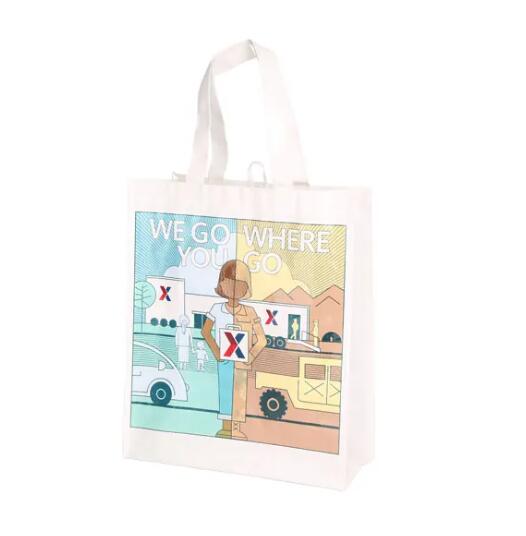Choosing the Perfect Shopping Bag: Functionality Meets Style and Sustainability
2024-09-10
Shopping bags have become more than just a tool for carrying goods; they are now a reflection of personal style, sustainability values, and practical needs. Whether you're looking for a fashionable tote for your next shopping trip or a durable bag for grocery runs, there are endless options on the market today. But how do you choose the right shopping bag for your needs? In this blog, we’ll explore the various types of shopping bags available and the factors to consider when making your choice.
Types of Shopping Bags
The evolution of the shopping bag has given rise to a variety of options that cater to different preferences, styles, and environmental concerns. Here are some popular types of shopping bags:
1. Paper Shopping Bags
- Advantages: Paper bags are biodegradable, recyclable, and a popular choice for retailers in various industries. They often come with handles for convenience and can be easily branded with company logos.
- Disadvantages: While eco-friendly, paper bags are less durable than other options and can tear easily if carrying heavy or wet items.
2. Plastic Shopping Bags
- Advantages: Plastic bags are lightweight, durable, and can be reused multiple times. Many plastic bags are now made from recycled materials to reduce environmental impact.
- Disadvantages: Single-use plastic bags are harmful to the environment and contribute to pollution, leading to bans in many regions. Even reusable plastic bags may not break down easily in landfills.
3. Reusable Tote Bags
- Advantages: Reusable totes are made from strong, durable materials like cotton, canvas, or jute. They are perfect for carrying heavy loads and can be used repeatedly, making them an eco-friendly option.
- Disadvantages: Some reusable bags are bulky, and they require regular cleaning to maintain hygiene, especially if used for groceries.
4. Biodegradable and Compostable Bags
- Advantages: These bags are made from plant-based materials and are designed to break down naturally over time. They offer a sustainable alternative to traditional plastic bags.
- Disadvantages: While environmentally friendly, these bags may not be as strong as plastic or reusable totes, limiting their practicality for heavy-duty use.
5. Foldable Shopping Bags
- Advantages: Foldable shopping bags are compact and lightweight, making them perfect for those who want to carry a spare bag in their purse or pocket. They are typically made from fabric or nylon and can be reused many times.
- Disadvantages: While convenient, foldable bags may not offer as much space or durability as larger totes or plastic bags.
Factors to Consider When Choosing a Shopping Bag
1. Durability
- Depending on what you plan to carry, the durability of the bag is crucial. If you're using the bag for groceries, a strong, reusable tote may be ideal. For light shopping or clothing, a paper or fabric bag might suffice.
2. Capacity
- Consider how much you typically carry during shopping trips. Some bags, like canvas totes or large plastic bags, offer more space for bulk items, while smaller foldable bags are great for quick errands.
3. Sustainability
- With growing concerns over plastic pollution, sustainability should be a key consideration. Reusable bags made from eco-friendly materials like cotton, jute, or recycled plastic are ideal for reducing environmental impact. Additionally, consider whether the bag can be recycled or composted at the end of its life.
4. Portability
- If you prefer a bag that you can easily carry with you at all times, look for foldable or compact options. Foldable bags can fit into small spaces, making them perfect for unexpected shopping trips.
5. Style
- Shopping bags are no longer just practical tools—they can also be a fashion statement. Many brands offer stylish totes with trendy designs, colors, and patterns, allowing you to express your personality while shopping.
6. Cost
- While reusable bags often cost more upfront than single-use plastic or paper bags, they save money in the long run by reducing the need for repeated purchases. Additionally, some retailers offer discounts for customers who bring their own bags.
The Benefits of Reusable Shopping Bags
Switching to reusable shopping bags has several advantages:
- Eco-Friendly: By using reusable bags, you reduce the demand for single-use plastic, helping to combat plastic pollution and protect the environment.
- Cost-Effective: Many stores charge extra for plastic or paper bags, so bringing your own reusable bag can save you money.
- Durable: Reusable bags are typically stronger and more durable than single-use options, making them perfect for carrying heavy or awkwardly shaped items.
- Versatile: Reusable bags aren’t just for shopping—use them for picnics, beach trips, or even as an everyday tote bag.
Conclusion
Choosing the right shopping bag depends on your lifestyle, shopping habits, and environmental values. Whether you prioritize sustainability, durability, or style, there are plenty of options to fit your needs. By switching to reusable bags and making thoughtful choices about the materials and functionality of your shopping bags, you can reduce your environmental impact while enjoying the convenience and versatility they offer.



